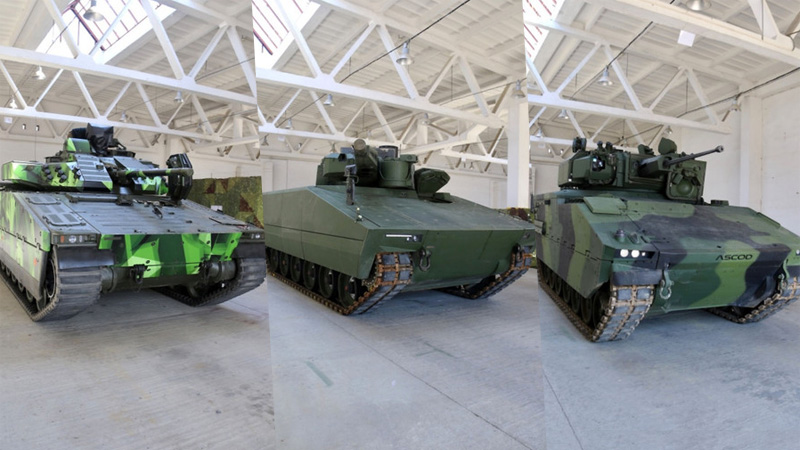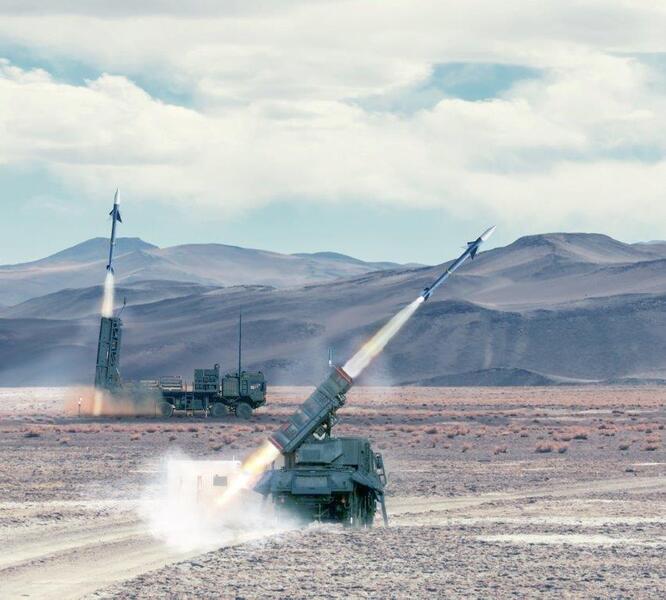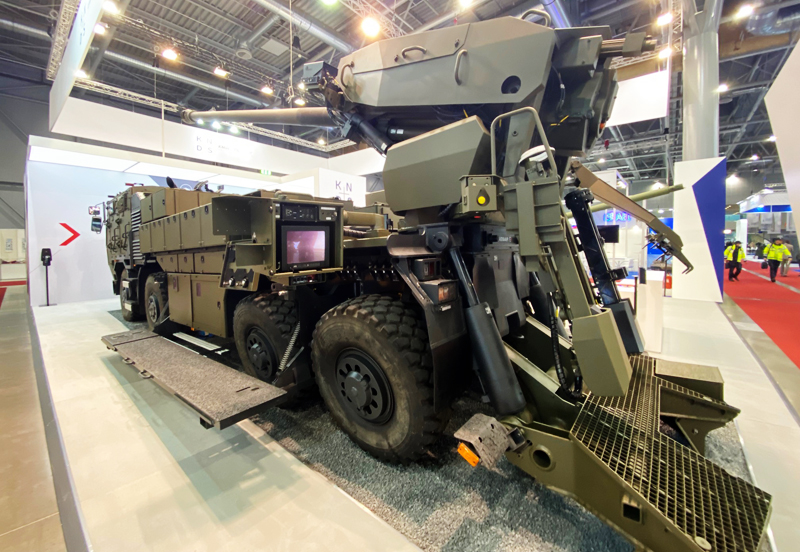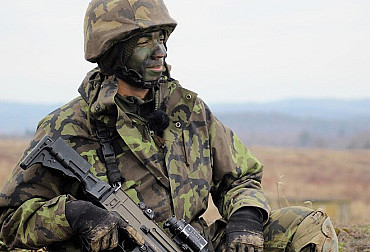The year 2021 from the perspective of the military acquisitions - visible successes, but with an exclamation point around tracked IFVs
The year 2021 is slowly coming to an end and the October elections were also an imaginary precursor. Currently, a new Government is being formed, and a new Minister of Defence will come in. Let us recapitulate the performance of the Ministry of Defence in the field of acquisition and modernisation projects of the Armed Forces that were planned for this year. The most important one, the tracked IFV, has been stalling for the umpteenth time. Others, however, were rather helped by the October elections to implementation.
Communist pressure on the defence budget
The beginning of the year was marked by discussions about the possible consequences of the CZK 10 billion reduction in the defence budget, which was forced on the Government by the communists in exchange for support of the state budget. The case was accompanied by a threat of resignation by Defence Minister Lubomír Metnar, and despite a number of delays, the MoD finally got its money, temporarily transferred to the Government budget reserve to deal with the ongoing coronavirus pandemic. This was clearly a communist populist effort to hit the defence budget of an Alliance member state, and to some extent they succeeded. Some acquisitions have been complicated by this, and the measure figures among the reasons the MoD gives for delays in the tender for tracked IFVs. The other half of the 10 billion was approved by the Government to be returned to defence at the end of March.
The IFV problem
A timetable of steps to be taken to conclude the tender for the delivery of 210 tracked IFVs worth 52 billion crowns was also presented. The anti-covid measures pushed back the testing of functional samples to the end of April and the beginning of May, but other parallel deadlines meant that the contract could not be signed before the date of the regular elections, which became a definite certainty the moment the bidders asked for a postponement of the deadline for submitting final bids. The new deadline was 1 September. Then, two months later, on Friday 5 November, the MoD's expert committee announced that none of the three reputable companies - the British-Swedish BAE Systems, the American-Spanish GDELS and the German Rheinmetall - met the contracting authority's requirements.
 Picture: On Friday, 5 November, the Ministry of Defence announced that an expert committee had completed the evaluation of bids for the delivery of 210 tracked Infantry Fighting Vehicles (IFVs). | Ministry of Defence of the Czech Republic
Picture: On Friday, 5 November, the Ministry of Defence announced that an expert committee had completed the evaluation of bids for the delivery of 210 tracked Infantry Fighting Vehicles (IFVs). | Ministry of Defence of the Czech Republic
Only the new leadership of the Ministry of Defence will decide on the further fate of the tender, while time is running out and the deadline of 1 January 2026, by which the Czech Republic is to make a brigade task force of heavy type, armed with modern equipment, available to the Alliance for rapid reaction forces, is approaching. This year's budget originally envisaged spending CZK 4.210 billion on this project.
Self-propelled guns and air-defense system
Difficult negotiations have also been conducted since the spring on the acquisition of CAESAR self-propelled guns, procured by direct approach to the manufacturer, the French state-owned company Nexter, and the acquisition of SPYDER anti-aircraft guns, procured by intergovernmental agreement with Israel and manufactured by RAFAEL. In April, the price offers from both foreign partners were significantly higher than the originally calculated CZK 6 and 10 billion, respectively, and the degree and forms of involvement of the Czech defence industry were also at stake. For the guns it was at least 40% with the requirement of domestic production of 155mm ammunition, and for the anti-aircraft system 30%.
 Picture: SPYDER - Short and medium range anti-aircraft missile system (SHORAD) | Ministry of Defence of the Czech Republic
Picture: SPYDER - Short and medium range anti-aircraft missile system (SHORAD) | Ministry of Defence of the Czech Republic
The contract for the purchase of the self-propelled guns was signed in the presence of the French Minister of Defence on 30 September. A total of 52 guns will be delivered between 2024 and 2026, with a final purchase price of CZK 8.5 billion. The chassis and armoured cabins will be from TATRA, or TATRA DEFENSE VEHICLE, where most of the guns will be assembled. Modern 155mm ammunition will be supplied by STV GROUP in cooperation with EXPLOSIA, which was one of the essential requirements of the Czech side.
 Picture: CAESAR 8x8 155mm SpH at IDET 2021 | Martin Šiška / CZ Defence
Picture: CAESAR 8x8 155mm SpH at IDET 2021 | Martin Šiška / CZ Defence
The contract for the acquisition of the SPYDER systems followed on 5 October, and the ministry managed to conclude the two most important purchases of this year within days before the parliamentary elections. The acquisition price amounts to CZK 13.7 billion, and at the same time the MoD has also quantified the expected life cycle costs as called for by the Supreme Audit Office. They are to be approximately 23.5 billion spread over a period of twenty years. RETIA and the state-owned enterprise VTU are contributing 38% of the project - both have experience of working with Israel from the MADR radar projects, which are fully compatible with the SPYDER system.
Lesser acquisitions
In February, the MoD acquired 31 pieces of medical tents with accessories intended for the provision of outpatient, post-operative and then hospital care in field conditions. The company Zepelin from Slovakia will pay CZK 33 million for them.
600 sets of OVP-12 SL-1 personal parachutes will be delivered by October 2026 for CZK 115.1 million, according to the contract concluded on 23 March. This was followed by the acquisition of OM-90 protective masks, 9,000 sets to be delivered by October 2023 for 159.7 million. At the end of April, the Ministry of Defence purchased for 271.4 million a total of 16 TATRA T-815 6x6 flatbed vehicles intended as a transport vehicle for the RBS-70NG anti-aircraft manpads. The modification of the flatbeds of the vehicles is provided by the Military Technical Institute. At the same time, the Ministry also purchased 75- and 45-litre backpacks from HUSKY for equipping soldiers during combat activities and training.
In May, a framework contract was signed with STV GROUP for the supply of four types of ammunition for RPG-7 up to the amount of CZK 500 million and with implementation by the end of 2024. In July, a contract was signed for the supply of four sets (for Náměšt' nad Oslavou, Čáslav, Praha-Kbely and Pardubice airports) of MOPIENS type precision instrument approach systems to be supplied by LPP for CZK 158.7 million, including the ecological disposal of the existing NORMARC system. This is a ground-based radio navigation equipment, thanks to which aircraft can land even in difficult weather conditions or at night according to instruments.
Major deliveries under previous contracts
In May and July, representatives of the Armament and Acquisition Section took delivery of two CASA C-295MW aircraft under the December 2019 purchase agreement, bringing the total number of aircraft of this type to six. Incidentally, in October, former Defence Minister Vlasta Parkanová was acquitted of charges of wastefulness in the acquisition of the original four aircraft from 2009 by a final Court of Appeal ruling after years of legal wrangling.
In August, Toyota Hilux vehicles delivered by Glomex MS under a November 2020 contract were handed over to the first services. These off-road pick-ups are replacing the old soviet-era UAZ and out-of-production Land Rover Defender vehicles. A total of 1,200 units are expected to be delivered by 2024 under the framework contract.
Fine by the Office of Competition and Consumer Protection
Due to the high costs for the defence budget, it is also worth mentioning the fine imposed by the Office of the Ministry of Defence for not settling the objections of the Italian company Leonardo in the matter of the acquisition of multi-purpose helicopters at the end of 2019. It is about 550 million crowns already paid by the Ministry. The MoD is defending itself against the fine through the courts. Neither the execution of the signed contract nor the delivery of four Vipers and eight Venom is affected by the fine.
In principle, this year's acquisitions can already be described as a success, with the major reservation of the tender for tracked IFV, where there is another delay in a row. The original deadline for signing the contract fell in 2019. We will only see at the beginning of 2022 whether this year's budget will be exhausted and the good result of last year will be repeated. The new Government's programme statement will undoubtedly include a commitment to increase the defence budget up to 2% of GNI in 2025. At the same time, there will be increasing pressure from many directions to reduce expenditure in this chapter and transfer it elsewhere, or to save it. The transparency and efficiency of the MoD's acquisition processes will be a very important argument in a difficult situation.





















